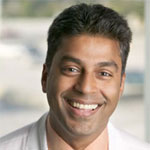We have all heard about hypertension ; some of us have hypertension, less are treated for hypertension and too few are adequately protected from hypertension. Hypertension (high blood pressure- HBP) is the leading treatable risk factor for death worldwide. It affects all organs and contributes to strokes, heart attacks, and kidney failure.
Other than a headache, hypertension rarely is noticeable without a blood pressure measurement. Blood pressure readings can be obtained in the doctor’s office , most pharmacies and at home. Systolic represents the top number and diastolic represents the bottom number. Systolic readings go up as vessels harden over time.
Diastolic numbers are more influenced by your autonomic nervous system and vascular tone. If your systolic reading is over 140 mmHg or your diastolic is over 90 mmHg, you have hypertension.
Age, family history and ethnic backgrounds are important determinants of HBP. Your weight, salt intake, alcohol consumption and activity level all contribute to HBP. Many patients believe that they have ‘white coat’ hypertension, a phenomenon in which patients exhibit elevated blood pressure in a clinical setting but not in other settings. It is believed that this is due to the anxiety some people experience during a clinic visit.
In the past we often did not treat such patients. We now know that it is the sudden surge of blood pressure that can often precipitate acute events such as a heart attack, stroke or sudden death, by causing a plaque in the heart or neck to rupture. Therefore controlling blood pressure surges is important.
If your blood pressure goes up in the doctor’s office, chances are that other life situations also cause similar surges.
A minimum of three elevated readings on separate occasions is required to diagnose hypertension. Initial treatment for mild cases is lifestyle modification. Reducing your sodium intake to under 2g a day, exercising vigorously for 30 minutes 5 times a week, losing weight and reducing alcohol intake to less than two drinks a day will all significantly lower your blood pressure.
Many over-the-counter medications most notably the anti-inflammatory agents such as ibuprofen, decongestants, and stimulants including caffeine can raise your blood pressure.There are a few medical conditions such as hyperthyroid disease, kidney disease and adrenal gland tumors that can cause high blood pressure.
These are relatively rare.When lifestyle modification fails, or if you already have evidence of hypertension induced injury to vital organs, then drug therapy needs to be initiated. In the past, hypertensive drugs were expensive and filled with side effects.
Today, we are fortunate to have many drugs which work well independently or in combination. Most are now generic and easily affordable. ACE inhibitor, angiotensin receptor blockers, aldosterone antagonists, calcium channel blockers, beta blockers, alpha blockers, direct renin inhibitors, direct vasodilators, nitrates and diuretics are all options.
Your doctor will help choose the right combination of these drugs to minimize side effects, cost, and inconvenience while maximizing benefit both in terms of reducing blood pressure but more importantly preventing bad outcomes. It’s worth knowing your blood pressure!


